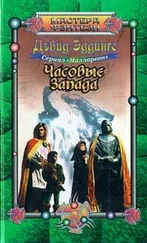It was in late November, I think, when Mr. and Mrs. Greenleaf and I actually got some good news for a change. Renata—we had agreed among ourselves by then that it almost certainly was Renata in that private sanitarium—woke up. She stopped talking exclusively in twin-speak and began answering questions in English.
Our frequent contacts with Dr. Fallon, the chief of staff at the institution, had made us aware that twin-speak was common—so common, in fact, that it had a scientific name—”cryptolalia.” Dr. Fallon told us that it shows up in almost all cases of multiple births. The secret language of twins isn’t all that complicated, but a set of quintuplets can invent a language so complex that its grammar book would run to three volumes.
When Renata stopped speaking in cryptolalia, though, her first question suggested that she wasn’t out of the woods yet. When a patient wakes up and says, “Who am I?” it usually gets the psychiatrist’s immediate attention.
The private sanitarium where she was being treated was up at Lake Stevens, and I rode up with Les and Inga on a rainy Sunday afternoon to visit her.
The rest home was several cuts above a state-supported mental hospital, which is usually built to resemble various other state institutions where people are confined. This one was back among the trees on about five acres near the lakeshore, and there was a long, curving drive leading to a large, enclosed interior court, complete with a gate and a guard. It was obviously an institution of some kind, but a polite one. It was a place where wealthy people could stash relatives whose continued appearance in public had become embarrassing.
Dr. Wallace Fallon had an imposing office, and he was a slightly balding man in his midfifties. He cautioned us not to push Renata.
“Sometimes all it takes to restore an amnesiac’s memory is a familiar face or a familiar turn of phrase. That’s why I’ve asked you three to stop by, but let’s be very, very careful. I’m fairly sure that Renata’s amnesia is a way to hide from the death of her sister. That’s something she’s not ready to face yet.”
“She will recover, won’t she?” Inga demanded.
“That’s impossible to say right now. I’m hoping that your visit will help her start regaining her memory—bits and pieces of it, anyway. I’m certain that she won’t remember what happened to her sister. That’s been totally blotted out. Let’s keep this visit fairly short, and we’ll want it light and general. I have her mildly sedated, and I’ll watch her very closely. If she starts getting agitated, we’ll have to cut the visit short.”
“Would hypnotism bring her out of it?” I asked him.
“Possibly, but I don’t think it’d be a good idea right now. Her amnesia’s a hiding place, and she needs that for the time being. There’s no way to know how long she’ll need it. There have been cases where an amnesiac never recovers his memory. He lives a normal life—except that he has no memory of his childhood. Sometimes, his memory’s selective. He remembers this, but doesn’t remember that. We’ll have to play it by ear and see just how far she’s ready to go.”
“Let’s go see her,” Inga said abruptly.
Dr. Fallon nodded and led us out of his office and down a hallway.
Renata’s room was quite large and comfortable-looking. Everything about it was obviously designed to suggest a calm stateliness. The carpeting was deep and lush, the furniture was traditional, and the window drapes were a neutral blue. A hotel room in that class would probably cost a hundred dollars a night. Renata was sitting in a comfortable reclining chair by the window, placidly looking out at the rain writhing down to sweep the lake.
“Renata,” Dr. Fallon said gently, “Your parents have come to visit you, and they’ve brought a friend.”
She smiled rather vaguely. “That’s nice,” she replied in a fuzzy sort of voice. Dr. Fallon’s definition of “mildly sedated” might have differed from mine by quite a bit. It looked to me as if Renata was tranked to the eyeballs. She looked rather blankly at her parents with no sign of recognition.
Then she saw me. “Markie!” she squealed. She scrambled to her feet and came running across the room to hurl herself into my arms, laughing and crying at the same time. “Where have you been?” she demanded, clinging to me desperately. “I’ve been lost here without you.” I held her while she cried, and I stared at her parents and Dr. Fallon in absolute bafflement. It was obvious from their expressions that they had no more idea of what was going on than I did.
FIRST MOVEMENT ADAGIO
“What’s happening here?” Les Greenleaf demanded, after Renata had been sedated into a peaceful slumber and we’d returned to Fallon’s office. “I thought you told us that she has total amnesia.”
“Evidently, it’s not quite as total as we thought,” Fallon replied, grinning broadly. “I think this might be a major breakthrough.”
“Why does she recognize Mark and not us?” Inga sounded offended.
“I haven’t got the faintest idea,” Fallon confessed, “but the fact that she recognizes somebody is very significant. It means that her past isn’t a total blank.”
“Then she’ll get her memory back?” Inga asked.
“Some of it, at least. It’s too early to tell how much.” Fallon looked at me then. “Would it be possible for you to stay here for the next few days, Mark?” he asked. “For some reason, you seem to be the key to Renata’s memory, so I’d like to have you available.”
“No problem, Doc,” I replied. “If the boss can drop me off at my place, I’ll grab a few things and come right back up the hill.”
“Good. I’ll want you right there when Renata wakes up. We’ve made a connection, and we don’t want to lose it.”
Les and Inga took me back to my place when we left the sanitarium. I tossed some clothes and stuff into a suitcase, grabbed some books, and drove my old Dodge back to Lake Stevens. I was as baffled as everybody else had been by Renata’s recognition of me, and it’d caught me completely off guard. There’d been a kind of desperation about the way she’d clung to me—almost like somebody hanging on to a life raft.
“We don’t necessarily have to mention this to her parents, Mark,” Fallon told me when I reported in, “but I think you’d better be right there in the room when Renata wakes up. Let’s not take any chances and lose this. All the rooms here have surveillance cameras, so I’ll be watching and listening. Don’t push her or say anything about why she’s here. Just be there.”
“I think I see where you’re going, Doc,” I told him.
The shot Dr. Fallon had given her kept Twink totally out of it until the next morning, and that gave me time to think my way through the situation. I was still working through my grief at losing my parents, but it was time to put my problems aside and concentrate, here and now, on Twink. If she needed me, I sure as hell wasn’t going to let her down.
I pushed the reclining chair over beside her bed, pulled the blanket up around my ears, and tapped out.
When I woke the next morning, Renata was still sound asleep, but she was holding my hand. Either she’d come about halfway out of her drug-induced slumber and found something to hold on to, or she’d just groped around for it in her sleep. Then again, it might have been me who’d been looking. It was sort of hard to say.
One of the orderlies brought our breakfast about seven, and I tugged on Twink’s hand a couple of times. “Hey, sack-rat,” I said, “rise and shine. It’s daylight in the swamp.”
Читать дальше












